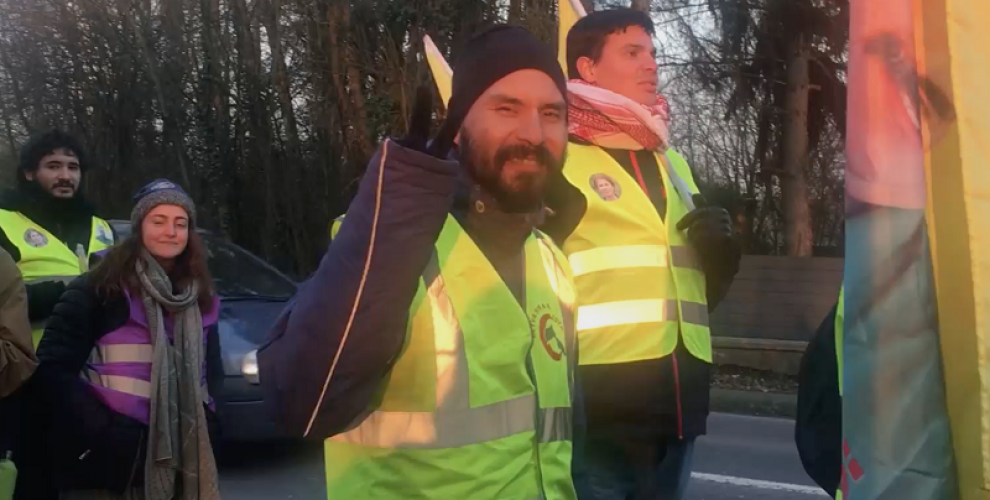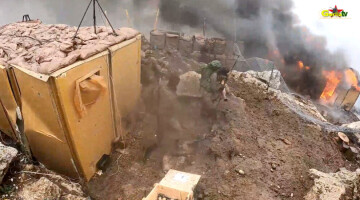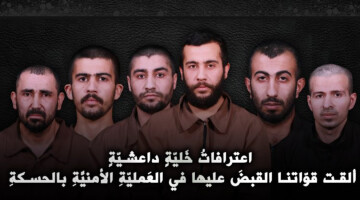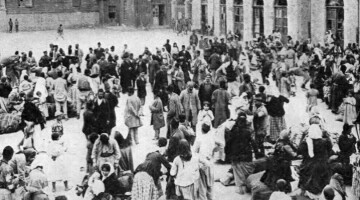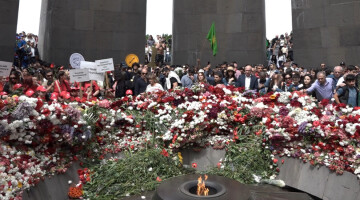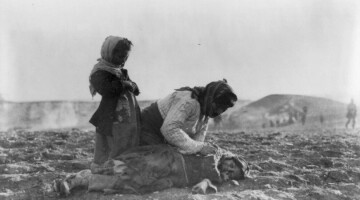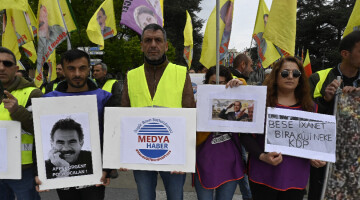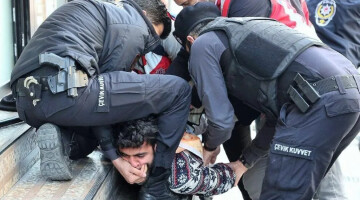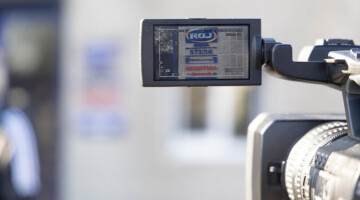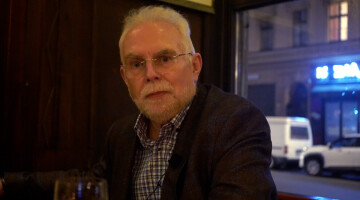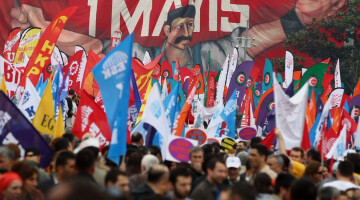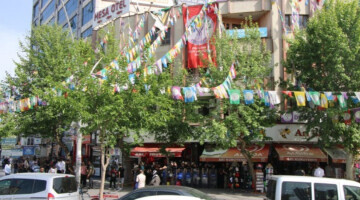The Europe-wide solidarity alliance for Afrin, in which 82 organizations and institutions have joined together, started on Monday a long march to the UN headquarters in Geneva. Around 1000 people from 37 different countries take part in the march. Among them are 200 internationalists from 17 countries participating in the traditional long march for the freedom of Abdullah Öcalan. The long march for the freedom of Abdullah Öcalan had already begun on 8 February. Now both marches have joined and strengthened their way to Geneva.
Dr. Maraz is joining the long march for the second time this year. He says that he supports the Kurdish liberation struggle and at the same time wants to look after the health care of the activists as a doctor. ANF spoke with Dr. Maraz about the revolution in Rojava and Abdullah Öcalan's paradigm of Democratic Confederalism.
Since when do you know the Kurds?
That was ten years ago. At that time I met a Kurd who lived here. This friend told me a lot about the Kurdish people and their fight for freedom. That aroused my interest. In the following years, when I came across Abdullah Öcalan's paradigm of Democratic Confederalism, I was very pleased. The search for a moral and political society, democratic socialism, the concept of social construction, the women's sciences (jineolojî), which are based on women's freedom and the women's revolution, deeply impressed me. In particular, the success in the fight against imperialism and capitalism in the Middle East is remarkable. The fact that the Kurdish freedom movement has resisted for many years and builds a new system based on these very fundamentals is a big step forward.
How is the revolution in Rojava considered in Latin America?
The Rojava revolution is at the center of our attention. The resistance that has been and is being mounted there is also felt on our continent. For the Kurdish people, the revolution in Rojava is a great achievement and for us it is a very important point of reference. In Latin America, as well as in many other parts of the world, it is so. The fact that today internationalist revolutionaries from all over the world have come together for Rojava is an example of this. The revolution created by Ocalan's ideas and works has opened up a great perspective. With its attacks, the Turkish state is now aiming to destroy them. The capitalist modernity, the origin of which can be found in the nation state, has found no way out of its problems for 200 years. The solution is quite simple: democratic confederalism. For Kurdistan, the Middle East, as well as Latin America, this represents an alternative.
What does the system of the nation state present for the peoples?
Dozens of ethnic groups, religious minorities and cultural differences are unfortunately being sacrificed to the policies of the nation. People lose their history, their identity, their customs and their culture. The revolutionary project in Rojava, on the other hand, revives all that. People return to the roots of their own language and culture. Therefore, this project will also be applicable to the indigenous peoples of Latin America.
Afrin is being attacked by the Turkish state. What do you think the Turkish government is aiming for with these attacks?
The terrorist Turkish state under the leadership of Erdogan, with the jihadist gangs at his side, targets the entire Kurdish people with its attacks on Rojava and Afrin. The Turkish state is in a panic. But not only the Turkish state has panicked, but also all the other capitalist and imperialist states because they find the model of democratic confederalism dangerous for themselves. Their silence and their support for Turkey must be viewed in this context. In Afrin, two worlds collide. On the one hand is the system of the nation state with all its imperialist and capitalist forces, and on the other hand is a new project of democratic confederalism based on a free, equal and politically moral society.
You also participated in the march last year. Can you see any differences this year?
There has been a stronger and broader participation this year compared to last year. The participants are from many different countries. This shows how far the idea of Democratic Confederalism has spread. The Kurdish people now have more friends, especially in Latin America. I would like to emphasize that I am ready to do whatever is expected of me.
There is no information about the situation of Abdullah Öcalan. Nevertheless, institutions such as the CPT are persistently silent.
I condemn the solitary confinement in which Öcalan is held. Especially for peace, it is necessary to have talks with Ocalan as soon as possible. We internationalists share the concern for Öcalan and are here for that reason as well. The isolation of Öcalan violates international law. Human rights associations and institutions must intervene.

